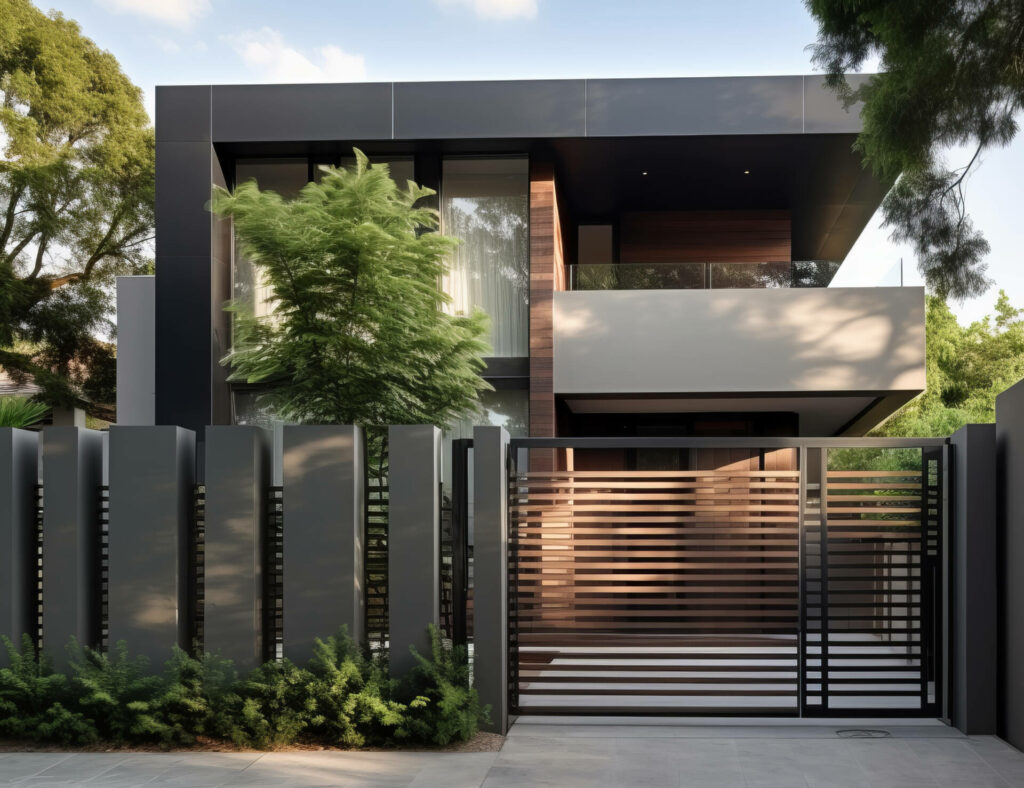All Categories
Featured

Fencing not just boosts the safety and privacy of your residential or commercial property however additionally plays a crucial role in its overall aesthetic. One of the most essential considerations when intending a fence project is the price. The rate of a fence relies on the product you select, the size of your residential or commercial property, and the intricacy of the installment. Comprehending the ordinary expenses of different fence materials can help you make an educated choice that fits your spending plan and style preferences. Below is a breakdown of typical secure fencing products and their associated expenses.
- Wood Fence. Wood remains among the most popular fence materials due to its traditional look and flexibility. The price of timber fence differs based on the kind of wood made use of, such as yearn, cedar, or redwood.
Typical Expense: $15--$ 50 per direct foot. Aspects Influencing Expense: Pressure-treated timber is extra inexpensive, while premium choices like cedar or redwood are extra expensive. The design of the fence, such as picket, divided rail, or personal privacy, additionally influences the rate. While wood fences are aesthetically pleasing, they require routine upkeep, including securing, staining, or paint, to avoid weather damages and prolong their life expectancy.
- Vinyl Fence. Vinyl fence is a long lasting, low-maintenance option that is resistant to weather, bugs, and rot. It's a superb choice for house owners seeking durability without extensive upkeep.
Average Cost: $20--$ 60 per straight foot. Aspects Influencing Expense: Prices can differ relying on the thickness of the vinyl, the style (e.g., privacy, picket, or ranch), and any kind of decorative aspects. Though plastic fencing has a greater ahead of time price contrasted to timber, its sturdiness and minimal maintenance make it cost-efficient gradually.
- Chain Web Link Fencing. Chain web link is a practical and affordable selection for fencing, frequently utilized for securing commercial homes or huge locations. While it does not use much personal privacy, it is lasting and very easy to set up.
Ordinary Price: $10--$ 30 per straight foot. Factors Affecting Expense: Coated chain web link (vinyl-coated or galvanized) is a lot more expensive however provides added toughness and aesthetic charm. This material is optimal for property owners searching for a cost-effective secure fencing solution that prioritizes capability.

- Aluminum Fence. Light weight aluminum fence is a stylish, rust-resistant material that imitates the appearance of wrought iron without the high upkeep or expense.
Average Price: $25--$ 70 per linear foot. Aspects Influencing Price: The price varies depending upon the design, elevation, and high quality of the material. Ornamental or decorative styles tend to set you back even more. Aluminum secure fencing is lightweight and resilient, making it a prominent option for residential or commercial properties with sloped terrain.
- Wrought Iron Fencing. Wrought iron fence is understood for its toughness, durability, and luxuriant styles. It includes a touch of refinement to any kind of property, however it comes with a higher rate tag.
Ordinary Price: $30--$ 100 per straight foot. Factors Affecting Price: Personalized layouts and complex details increase the price. In addition, functioned iron needs periodic upkeep to avoid corrosion. This material is a fantastic option for property owners seeking a fence that integrates safety and security and style.
- Compound Secure fencing. Compound secure fencing, made from a blend of timber fibers and recycled plastic, supplies the look of wood with the resilience of vinyl. It's a green and low-maintenance choice.
Typical Cost: $25--$ 55 per straight foot. Factors Affecting Price: Costs composite products or intricate layouts will boost the rate. Compound secure fencing is perfect for those who want a lasting fencing solution without compromising on aesthetic appeals.
- Bamboo Secure fencing. Bamboo is an environment-friendly option that includes an one-of-a-kind, tropical seek to your home. It's fairly cost effective and lightweight however not as sturdy as various other products.
Typical Expense: $12--$ 30 per straight foot. Factors Influencing Price: Rolled bamboo fence is commonly less costly than individual bamboo posts. While bamboo is excellent for decorative purposes, it may not stand up to severe weather along with other products.
- Stone or Stonework Secure Fencing. Stone or stonework fence supplies unrivaled durability and an ageless look. These fences can last for decades yet come with a considerably higher cost.
Typical Cost: $50--$ 150 per linear foot. Elements Influencing Price: The type of rock or brick used, the height of the fence, and the complexity of the design influence the rate. This kind of fencing is best for house owners looking for a long-lasting investment that includes significant aesthetic appeal and building value.
Added Expenses to Think About. Beyond the material, there are added expenditures to represent in your fencing task:
Labor: Setup prices vary from $5 to $20 per straight foot, relying on the material and complexity. Gates: Including gateways usually costs $150--$ 1,000 or more, depending upon the style and product. Allows: Some areas require authorizations for fencing installment, which can add $50--$ 400 to the total cost. Final thought. Picking the right fence material depends upon your budget, style preferences, and the primary objective of the fencing. While wood fencings are functional and inexpensive, materials like plastic and aluminum offer low-maintenance durability. If visual appeals and longevity are your priorities, think about wrought iron, composite, or masonry. By considering the costs and advantages of each material, you can make a decision that boosts both the functionality and look of your residential or commercial property.
Latest Posts
Find Affordable Auto Repairs with Montclare’s Exclusive Service Specials
Published May 26, 25
1 min read
Discover the Perks of Vinyl Fencing with Montana Fencing
Published May 21, 25
1 min read
Specialist Industrial Roof Solutions in North Platte, Nebraska
Published May 20, 25
2 min read